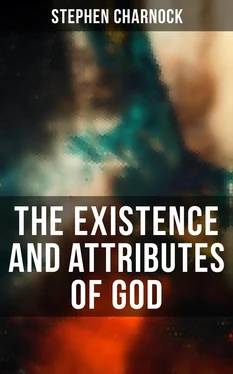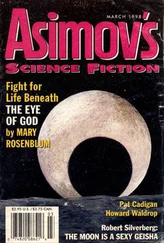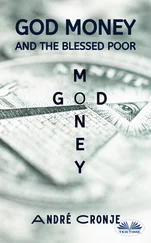Stephen Charnock - The Existence and Attributes of God
Здесь есть возможность читать онлайн «Stephen Charnock - The Existence and Attributes of God» — ознакомительный отрывок электронной книги совершенно бесплатно, а после прочтения отрывка купить полную версию. В некоторых случаях можно слушать аудио, скачать через торрент в формате fb2 и присутствует краткое содержание. Жанр: unrecognised, на английском языке. Описание произведения, (предисловие) а так же отзывы посетителей доступны на портале библиотеки ЛибКат.
- Название:The Existence and Attributes of God
- Автор:
- Жанр:
- Год:неизвестен
- ISBN:нет данных
- Рейтинг книги:5 / 5. Голосов: 1
-
Избранное:Добавить в избранное
- Отзывы:
-
Ваша оценка:
- 100
- 1
- 2
- 3
- 4
- 5
The Existence and Attributes of God: краткое содержание, описание и аннотация
Предлагаем к чтению аннотацию, описание, краткое содержание или предисловие (зависит от того, что написал сам автор книги «The Existence and Attributes of God»). Если вы не нашли необходимую информацию о книге — напишите в комментариях, мы постараемся отыскать её.
The Existence and Attributes of God — читать онлайн ознакомительный отрывок
Ниже представлен текст книги, разбитый по страницам. Система сохранения места последней прочитанной страницы, позволяет с удобством читать онлайн бесплатно книгу «The Existence and Attributes of God», без необходимости каждый раз заново искать на чём Вы остановились. Поставьте закладку, и сможете в любой момент перейти на страницу, на которой закончили чтение.
Интервал:
Закладка:
Alexander’s sight of Daniel’s prophecy concerning his victories moved him to spare Jerusalem. And are not the four monarchies plainly deciphered in that book, before the fourth rose up in the world? That power which foretells things beyond the reach of the wit of man, and orders all causes to bring about those predictions, must be an infinite power, the same that made the world, sustains it and governs all things in it according to his pleasure, and to bring about his own ends; and this being is God.
Use I. If atheism be a folly, it is then pernicious to the world and to the atheist himself. Wisdom is the band of human societies, the glory of man. Folly is the disturber of families, cities, nations; the disgrace of human nature.
First, It is pernicious to the world.
1. It would root out the foundations of government. It demolisheth all order in nations. The being of a God is the guard of the world: the sense of a God is the foundation of civil order: without this there is no tie upon the consciences of men. What force would there be in oaths for the decisions of controversies, what right could there be in appeals made to one that had no being? A city of atheists would be a heap of confusion; there could be no ground of any commerce, when all the sacred bands of it in the consciences of men were snapt asunder, which are torn to pieces and utterly destroyed by denying the existence of God. What magistrate could be secure in his standing? What private person could be secure in his right? Can that then be a truth that is destructive of all public good? If the atheist’s sentiment, that there were no God, were a truth, and the contrary that there were a God, were a falsity, it would then follow, that falsity made men good and serviceable to one another; that error were the foundation of all the beauty, and order, and outward felicity of the world, the fountain of all good to man.116 If there were no God, to believe there is one, would be an error; and to believe there is none, would be the greatest wisdom, because it would be the greatest truth. And then as it is the greatest wisdom to fear God, upon the apprehension of his existence, so it would be the greatest error to fear him if there were none.117 It would unquestionably follow, that error is the support of the world, the spring of all human advantages; and that every part of the world were obliged to a falsity for being a quiet habitation, which is the most absurd thing to imagine. It is a thing impossible to be tolerated by any prince, without laying an axe to the root of the government.
2. It would introduce all evil into the world. If you take away God, you take away conscience, and thereby all measures and rules of good and evil. And how could any laws be made when the measure and standard of them were removed? All good laws are founded upon the dictates of conscience and reason, upon common sentiments in human nature, which spring from a sense of God; so that if the foundation be demolished, the whole superstructure must tumble down: a man might be a thief, a murderer, an adulterer, and could not in a strict sense be an offender. The worst of actions could not be evil, if a man were a god to himself, a law to himself. Nothing but evil deserves a censure, and nothing would be evil if there were no God, the Rector of the world against whom evil is properly committed. No man can make that morally evil that is not so in itself: as where there is a faint sense of God, the heart is more strongly inclined to wickedness; so where there is no sense of God, the bars are removed, the flood‑gates set open for all wickedness to rush in upon mankind. Religion pinions men from abominable practices, and restrains them from being slaves to their own passions: an atheist’s arms would be loose to do anything.118 Nothing so villanous and unjust but would be acted if the natural fear of a Deity were extinguished. The first consequence issuing from the apprehension of the existence of God, is his government of the world. If there be no God, then the natural consequence is that there is no supreme government of the world: such a notion would cashier all sentiments of good, and be like a Trojan horse, whence all impurity, tyranny, and all sorts of mischiefs would break out upon mankind: corruption and abominable works in the text are the fruit of the fool’s persuasion that there is no God. The perverting the ways of men, oppression and extortion, owe their rise to a forgetfulness of God (Jer. iii. 21): “They have perverted their way, and they have forgotten the Lord their God.” (Ezek. xxii. 12): “Thou hast greedily gained by extortion, and hast forgotten me, saith the Lord.” The whole earth would be filled with violence, all flesh would corrupt their way, as it was before the deluge, when probably atheism did abound more than idolatry; and if not a disowning the being, yet denying the providence of God by the posterity of Cain: those of the family of Seth only “calling upon the name of the Lord” (Gen. vi. 11, 12, compared with Gen. iv. 26).
The greatest sense of a Deity in any, hath been attended with the greatest innocence of life and usefulness to others; and a weaker sense hath been attended with a baser impurity. If there were no God, blasphemy would be praiseworthy; as the reproach of idols is praiseworthy, because we testify that there is no divinity in them.119 What can be more contemptible than that which hath no being? Sin would be only a false opinion of a violated law, and an offended deity. If such apprehensions prevail, what a wide door is opened to the worst of villanies! If there be no God, no respect is due to him; all the religion in the world is a trifle, and error; and thus the pillars of all human society, and that which hath made commonwealths to flourish, are blown away.
Secondly, It is pernicious to the atheist himself. If he fear no future punishment, he can never expect any future reward: all his hopes must be confined to a swinish and despicable manner of life, without any imaginations of so much as a drachm of reserved happiness. He is in a worse condition than the silliest animal, which hath something to please it in its life: whereas an atheist can have nothing here to give him a full content, no more than any other man in the world, and can have less satisfaction hereafter. He deposeth the noble end of his own being, which was to serve a God and have a satisfaction in him, to seek a God and be rewarded by him; and he that departs from his end, recedes from his own nature. All the content any creature finds, is in performing its end, moving according to its natural instinct; as it is a joy to the sun to run its race.120 In the same manner it is a satisfaction to every other creature, and its delight to observe the law of its creation. What content can any man have that runs from his end, opposeth his own nature, denies a God by whom and for whom he was created, whose image he bears, which is the glory of his nature, and sinks into the very dregs of brutishness? How elegantly it is described by Bildad,121 “His own counsel shall cast him down, terrors shall make him afraid on every side, destruction shall be ready at his side, the first‑born of death shall devour his strength, his confidence shall be rooted out, and it shall bring him to the king of terrors. Brimstone shall be scattered upon his habitation; he shall be driven from light into darkness, and chased out of the world. They that come after him shall be astonished at his day, as they that went before were affrighted. And this is the place of him that knows not God.”122 If there be a future reckoning (as his own conscience cannot but sometimes inform him of), his condition is desperate, and his misery dreadful and unavoidable. It is not righteous a hell should entertain any else, if it refuse him.
Use II. How lamentable is it, that in our times this folly of atheism should be so rife! That there should be found such monsters in human nature, in the midst of the improvements of reason, and shinings of the gospel, who not only make the Scripture the matter of their jeers, but scoff at the judgments and providences of God in the world, and envy their Creator a being, without whose goodness they had none themselves; who contradict in their carriage what they assert to be their sentiment, when they dreadfully imprecate damnation to themselves! Whence should that damnation they so rashly wish be poured forth upon them, if there were not a revenging God? Formerly atheism was as rare as prodigious, scarce two or three known in an age; and those that are reported to be so in former ages, are rather thought to be counted so for mocking at the senseless deities the common people adored, and laying open their impurities. A mere natural strength would easily discover that those they adored for gods, could not deserve that title, since their original was known, their uncleanness manifest and acknowledged by their worshippers. And probably it was so; since the Christians were termed ἄθεοι, because they acknowledged not their vain idols.123
Читать дальшеИнтервал:
Закладка:
Похожие книги на «The Existence and Attributes of God»
Представляем Вашему вниманию похожие книги на «The Existence and Attributes of God» списком для выбора. Мы отобрали схожую по названию и смыслу литературу в надежде предоставить читателям больше вариантов отыскать новые, интересные, ещё непрочитанные произведения.
Обсуждение, отзывы о книге «The Existence and Attributes of God» и просто собственные мнения читателей. Оставьте ваши комментарии, напишите, что Вы думаете о произведении, его смысле или главных героях. Укажите что конкретно понравилось, а что нет, и почему Вы так считаете.












